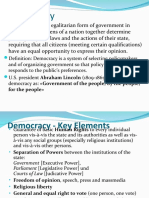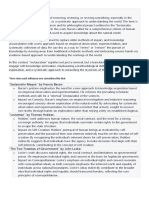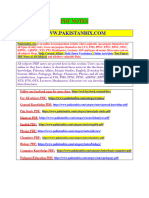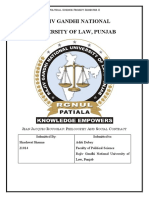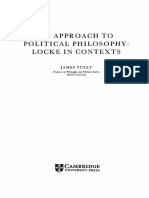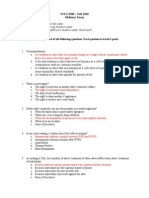0% found this document useful (0 votes)
124 views7 pagesPolitical Science: Democracy Analysis
The document discusses democracy from ancient times to the present. It defines different types of states and forms of government, including incomplete, complete, and enlightened states, as well as totalitarian, authoritarian, monarchy, and democratic systems. Aristotle's six stages of political change are outlined, moving from monarchy to tyranny, aristocracy, oligarchy, polity, and finally democracy. The key requisites of a true democracy are defined as representative government, equality, fraternity, fundamental rights of people, liberty, an independent judiciary, and a welfare state. Direct and indirect forms of democracy are also discussed.
Uploaded by
Priyanshu TawerCopyright
© © All Rights Reserved
We take content rights seriously. If you suspect this is your content, claim it here.
Available Formats
Download as DOCX, PDF, TXT or read online on Scribd
0% found this document useful (0 votes)
124 views7 pagesPolitical Science: Democracy Analysis
The document discusses democracy from ancient times to the present. It defines different types of states and forms of government, including incomplete, complete, and enlightened states, as well as totalitarian, authoritarian, monarchy, and democratic systems. Aristotle's six stages of political change are outlined, moving from monarchy to tyranny, aristocracy, oligarchy, polity, and finally democracy. The key requisites of a true democracy are defined as representative government, equality, fraternity, fundamental rights of people, liberty, an independent judiciary, and a welfare state. Direct and indirect forms of democracy are also discussed.
Uploaded by
Priyanshu TawerCopyright
© © All Rights Reserved
We take content rights seriously. If you suspect this is your content, claim it here.
Available Formats
Download as DOCX, PDF, TXT or read online on Scribd
/ 7


































